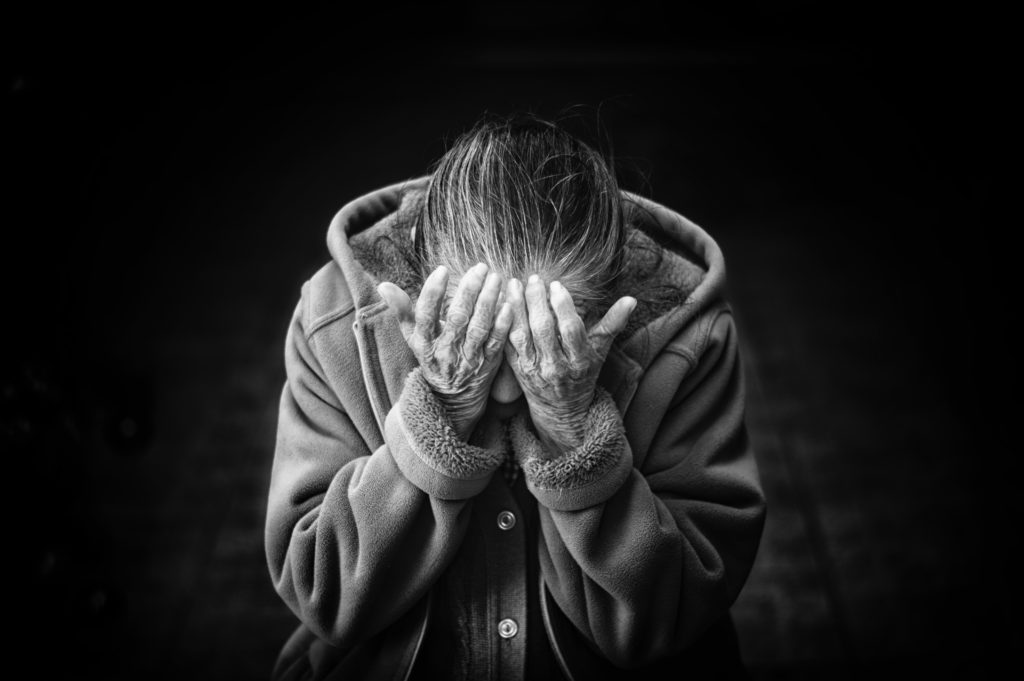SACRAMENTO, CA — Samuel Rodriguez, lead pastor of New Season Christian Worship Center in Sacramento, California, and president of the National Hispanic Christian Leadership Conference shares on our experience with pain and suffering amid the Coronavirus pandemic, and the assurance of God’s care for us in the midst of it all.
 No human being healthy in mind, body and spirit enjoys pain. By its very definition, pain causes distress, disruption and dysfunction. Whether acute with the sharp intensity of a blade stabbing through your body or chronic with the dull, unbearable ambience of constant paper cuts, pain directs our attention to the location of our wounding.
No human being healthy in mind, body and spirit enjoys pain. By its very definition, pain causes distress, disruption and dysfunction. Whether acute with the sharp intensity of a blade stabbing through your body or chronic with the dull, unbearable ambience of constant paper cuts, pain directs our attention to the location of our wounding.
If someone comes up and punches you, you become aware of the point of impact and the resulting pain on contact. Your jaw receives the force of the fist pummeling your face. Instinctively you turn to avoid the blow to your nose, eyes or temple in an attempt to protect the most sensitive areas prone to the most damage. Nerve endings transmit pain back to your brain as your body instantly begins to assess the damage and initiate recovery.
The coronavirus, its devastating economic impact and all the unrest and turmoil our nation and our world has faced has left us reeling in the agony of a comprehensive assault. The uncertainty of its approach, the duration of its attack and its uncompromising assassination of hope left us gasping in ways few people alive in the world today have ever experienced. Leaders we trusted seemed to know less than we did. Organizations and institutions disintegrated into anarchies and oligarchies. As we wondered how we would pay our bills and provide for our families, we felt orphaned and isolated, left without resources in a world depleted and exhausted.
For all of their crushing destruction and lingering effects, the circumstances of the recent events have an eternally significant silver lining: We have nowhere to run except to God.
When times are good and our families are healthy and our jobs secure, when we’re enjoying an abundance of God’s blessings to the point that we’ve come to feel entitled to them, when we slip into old ways of thinking that we can control our lives, there’s only one way to get our attention. Because when we lose something or someone, when the future we had mapped out suddenly vanishes in a matter of minutes, then we realize just how little control we have over anything in our lives. We recognize our limitations in these mortal bodies and turn back to the omniscient, all-powerful Almighty God, creator of heaven and earth.
The temptation during such trials might be to despair and wonder why we have to suffer while it appears others do not. Like Job, a man whom God allowed to lose everything—his family, his fortune, his health—we cannot fathom what we have done to deserve such anguish and suffer such loss. But when the whole world is suffering alongside us—when we look around at our friends and neighbors, our co-workers and colleagues, our acquaintances and familiar faces, and see the smoldering pain and vacant expressions—it can be even more confusing. When we’re unable to embrace loved ones and forced to endure unbearable distances apart with no end in sight, we feel confined by our loneliness.
We may even be tempted to rage against God and cast blame on Him for allowing us to suffer so harshly for so long. Or we may erroneously assume He caused such devastation in our lives when we know it is in His power to protect us. This is when we must remember that God never promised us a life of safety and comfort but a life of transformation. We often become so committed to avoiding pain of any kind that we lose sight of its fundamental function: to allow God’s works to be displayed.
Prism of Pain
When we endure trials on the scale of the global pandemic, we must resist the temptation to play the blame game. These lines of thinking are natural and reactive and usually cannot be avoided in the midst of such calamity. Anytime something goes wrong or we suffer a loss, we’re likely to wonder why. Jesus’ disciples even posed this question once when they encountered a man who had been blind since birth:
“Rabbi, who sinned, this man or his parents, that he was born blind?”
“Neither this man nor his parents sinned,” said Jesus, “but this happened so that the works of God might be displayed in him. As long as it is day, we must do the works of him who sent me. Night is coming, when no one can work. While I am in the world, I am the light of the world.”
After saying this, he spit on the ground, made some mud with the saliva, and put it on the man’s eyes. “Go,” he told him, “wash in the Pool of Siloam” [this word means “Sent”]. So the man went and washed, and came home seeing (John 9:2-7, NIV).
Our trials can become opportunities for God’s light to shine through the cracks of our brokenness. God’s glory pours forth into the hard, raw places of our lives and provides a poultice to soothe our wounds and restore our hope. Out of the muddy mess of dirt and saliva, Jesus reveals the power to heal and cleanse. Rather than blame this man’s sin or his parents or God for making him blind, Jesus gave this man more than just the gift of sight; he became a living testament to the way God turns trials into triumphs.
If we want to transcend our goal to survive in order to thrive, then we must be willing to see by faith rather than by the sensory data viewed by our human eyes. We must allow our gritty circumstances to become the raw material for the masterpiece God wants to shape so that we can serve as His holy vessel. Rather than seeking to escape our pain, we can allow it to redirect our attention to a greater opportunity to trust God with every aspect of our wellbeing. As C.S. Lewis wrote in The Problem of Pain,
“Pain insists upon being attended to. God whispers to us in our pleasures, speaks in our conscience, but shouts in our pains: it is His megaphone to rouse a deaf world.”
Right now, you are reading this for a reason. God wants you to know He has not forgotten you and your needs. Your Creator has carried you through the unimaginable trials of recent times in order to strengthen you, empower you and redirect your attention to what matters most.
Through the power of Christ in you, you are not merely a survivor but a conqueror. In fact, God’s Word tells us we are more than conquerors (Rom. 8:37). Nothing can separate you from the love of God and the power of His Spirit in you! “If God is for us, who can be against us? … For I am convinced that neither death nor life, neither angels nor demons, neither the present nor the future, nor any powers, neither height nor depth, nor anything else in all creation, will be able to separate us from the love of God that is in Christ Jesus our Lord” (Rom. 8:31b, 38-39). God wants to use your pain as a prism for His glory.
As insurmountable, overwhelming and undermining as the pandemic and its collateral damage may seem to us, we are not the first to face impossible life-or-death challenges. We’re not the first to be told by experts and authority figures that there’s no way for us to recover and survive, let alone to endure and thrive.
We’re not the only people to place our trust in God while others roll their eyes and pity us for what they consider to be naïve, misplaced hope in the unimaginable. The Bible is filled with champions of the faith who dared to believe rather than despair, who endured trials until they tasted triumph, who walked on water and faced the fire, who parted the sea and survived a flood, who wrestled angels and defeated armies.
Rev. Dr. Samuel Rodriguez is president of the National Hispanic Christian Leadership Conference, executive producer of “Breakthrough” with 20th Century Fox and bestselling author of “You Are Next: Destroy What Has Paralyzed You and Never Miss Your Moment Again” (Charisma House Publishing). CNN and FOX News have called him “the leader of the Hispanic Evangelical movement” and TIME magazine nominated him among the 100 most influential leaders in America.
The National Hispanic Christian Leadership Conference is recognized and identified by Time Magazine, New York Times, The Wall Street Journal, Christianity Today, Charisma Magazine, NBC, Telemundo, Univision, Fox News and CNN as America’s largest and most influential Hispanic/Latino Christian organization with more than 40,000 certified member churches in the United States and chapters in Latin America.
Website | www.nhclc.org Twitter | @nhclc
Read more news on Christian Ministry and the Coronavirus Outbreak on Missions Box.
GFA’s Statement About Coronavirus
Sources:
- The Kairos Company, Samuel Rodriguez Says You Can Thrive Through Your Pain
- Charisma Magazine, Official Website




